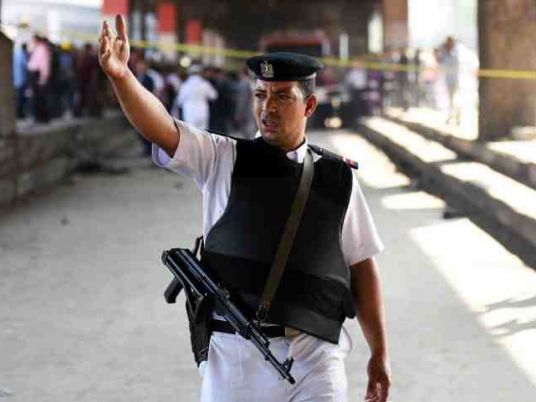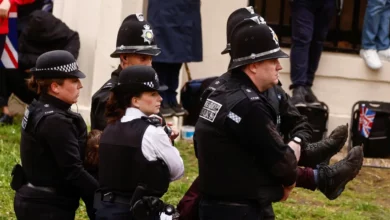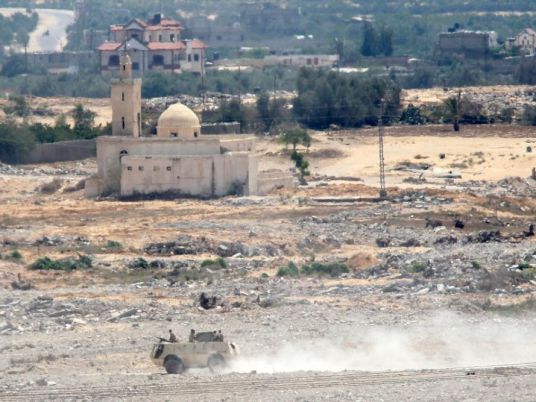Families of those killed or injured in the coastal city of Alexandria during the recent Egyptian uprising have revealed that police officers have made threats against them in order to force them to withdraw their accusations.
Meanwhile, some families have told the media in recent days that police officers accused of killing and injuring protesters have offered them compensation of up to LE1 million in return for dropping charges.
According to experts, these cases and the judicial process behind them pose a major challenge for post-Mubarak Egypt, representing as they do a system of justice riddled with shortcomings and reinforcing a culture of impunity.
One of these shortcomings is that the legal framework does not provide any protection for witnesses.
“You don’t have any procedures to protect witnesses, such as appointing guards to protect them and their houses. Witnesses are vulnerable. Judges are the only ones who have the right to be protected by police when they are overseeing important cases,” said Mahmoud Kandil, a human rights activist and lawyer.
“You can’t prevent the accused high-ranking officers making efforts to intimidate witnesses. As in the past, witnesses have no legal protection; therefore, they are more vulnerable and subject to pressure from suspects,” said Kandil.
This month, families of injured protesters in the Delta province of Sharqiya rescinded their accusations against a policeman charged with using excessive force against protesters.
A source close to the case told Al-Masry Al-Youm under the condition of anonymity that the families were pressured by the police.
“The families of the injured have reconciled with the police officer. They view this reconciliation as better than the suffering they have been through during this endless case,” he said.
Cases in which policemen are accused of killing protesters are subject to continuous postponements by courts.
On 12 June, Judge Mansour Saker, head of Mansoura Criminal Court, adjourned the trial of four police officers, two of whom are high-ranking officers. The case was postponed to 5 September.
“What is the message you’re sending by postponing a trial for three months?” asked Kandil.
Kandil has been observing the trial of four police officers accused of killing protesters in the Nile Delta city of Mansoura. He told Al-Masry Al-Youm that he is not optimistic about the outcome of these trials.
Human rights activists have always raised concerns about the slow path of justice in Egypt where there is no legal provision that could push judges to accelerate the process of overseeing cases.
“You’re telling the people that the revolution didn’t change anything in the justice system designed by the Mubarak regime. You’ll be always standing in the tunnel of slow justice,” said Nasser Amin, head of the Arab Centre for the Independence of the Judiciary and the Legal Profession.
Moreover, Sayyed Fathy, another human rights lawyer, added that the law does not oblige the prosecution to conduct sufficient investigations.
“Maybe due to public pressure, the prosecutors, especially in the governorates, were in a hurry to finish investigations… rather than referring them to courts,” said Fathy. Courts, he said, “would take more time in deliberating the whole case.”
“The best scenario is that the court would start the investigations from scratch by listening to the witnesses, and this obviously would prolong the trial. The worst scenario would be the court freeing all suspects,” Fathy contended.
Human rights activists have said that a major problem with the cases is that investigations are not initiated by the prosecutor without public pressure.
“The prosecution doesn’t move unless there is pressure from public opinion. We haven’t seen the prosecutors act voluntarily against perpetrators,” said Rawda Ahmed, a lawyer with the Arab Network for Human Rights Information.
Implementation of court rulings is also limited. Experts argue that even if you have a court ruling, the law does not guarantee that the government will implement it.
“This was a favorite strategy of the old regime. Get whatever you want from court rulings, but the regime is not going to implement any of them,” argued Amin.
Last month, a criminal court in Cairo sentenced rank-and-file police officer Mohamed Abdel Moneim to death after trying him in absentia for killing 20 protesters and wounding 15 on 28 January.
Since then, Abdel Moneim gave two interviews for two major newspapers, and there is no sign that police are searching for him.
Some argue that Abdel Moneim’s case proceeded quickly due to his low rank within the police.
“What’s alarming is that most of the accused officers are free. The government hasn’t yet ordered that these officers be prevented from continuing their job. They only attend the hearings, where a postponement is scheduled, and then they go back to their work,” said Kandil.
Under Egyptian law, the judge of a criminal court has the right to imprison a suspect or to set him free. Amin considers the law a disaster.
“Imagine a police officer who is accused of murder but who is still doing his job,” he said.
Four months after the revolution first erupted, scores of police officers from 12 governorates have been referred to criminal courts for killing and injuring hundreds of protesters.
According to official figures, at least 840 people were killed and more than 6000 wounded during protests that led Mubarak to step down on 11 February.
In April, a state-sponsored fact-finding committee said that the former president was ultimately responsible for killing protestors. According to the committee, Mubarak ordered security forces to use excessive force against demonstrators, many of whom died from gunshot wounds to the head and chest.




